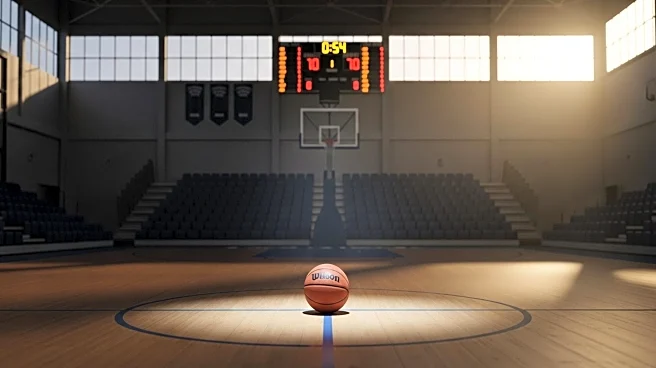What's Happening?
Sister Jean Dolores Schmidt, the beloved chaplain of the Loyola-Chicago basketball team, has passed away at the age of 106. The university announced her death on October 9, 2025. Sister Jean became a prominent figure in college basketball during Loyola-Chicago's unexpected success in the 2018 NCAA Tournament, where the team made a remarkable run. Her presence and support were seen as a source of inspiration for the team and fans alike. In August, Sister Jean had retired from her university duties due to health concerns. Her passing has prompted tributes from across the sports world, highlighting her impact and legacy within the college basketball community.
Why It's Important?
Sister Jean's death marks the end of an era for Loyola-Chicago and the broader college basketball community. Her role as chaplain was not just spiritual but also symbolic of the unity and spirit within sports. Her popularity during the 2018 NCAA Tournament brought national attention to Loyola-Chicago, enhancing the university's profile and fostering a sense of community among fans. Sister Jean's legacy is a testament to the influence of non-athletic figures in sports, showing how they can inspire and motivate teams and fans. Her passing is a significant loss, but her contributions to the sport and her community will be remembered and celebrated.
What's Next?
Following Sister Jean's passing, Loyola-Chicago and the college basketball community are likely to organize tributes and memorials to honor her life and contributions. The university may hold a ceremony or event to celebrate her legacy, inviting alumni, current students, and fans to participate. Additionally, discussions may arise about how to continue her legacy within the university and the basketball program, possibly through scholarships or dedicated events. The impact of her passing will resonate throughout the upcoming basketball season, as teams and fans remember her influence and the spirit she brought to the sport.
Beyond the Headlines
Sister Jean's story highlights the role of faith and community in sports, illustrating how figures outside of the athletic realm can profoundly impact teams and their supporters. Her life and work underscore the importance of mentorship and support systems in collegiate sports, offering a model for other institutions to follow. Her legacy may inspire other universities to recognize and celebrate the contributions of non-athletic staff and volunteers who play crucial roles in the success and morale of sports teams.









